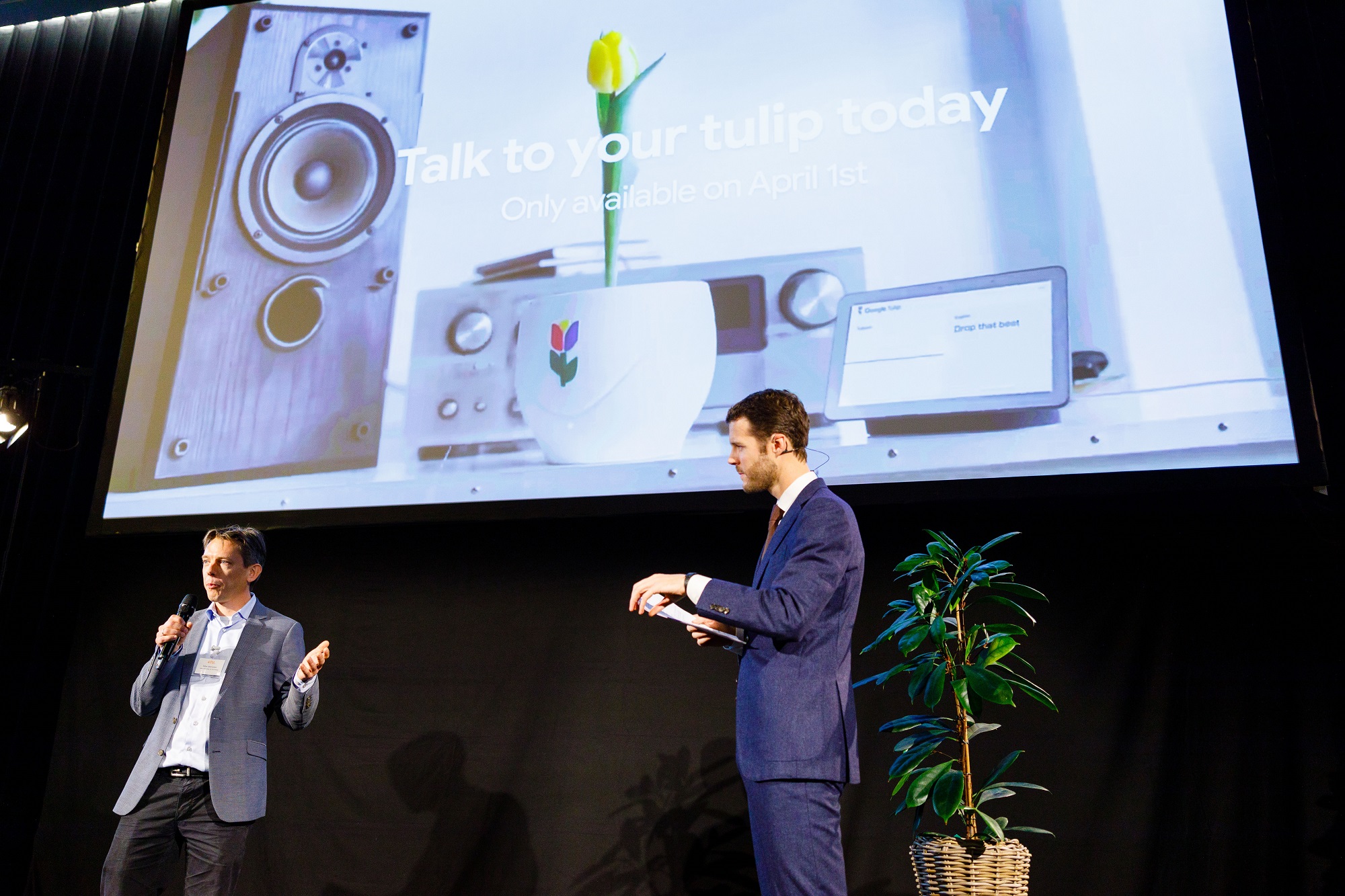Research programmes Soft Robotics and Botanic Sensor networks at 4TU event
The five new research programmes that have been awarded 22 million euros by the 4TU.federation presented themselves this week during the 4TU kick-off event. The overarching theme is ‘high tech for a sustainable future’. The universities of Delft, Eindhoven, Twente and Wageningen will be collaborating in these programmes. By consolidating their knowledge, they are committed to driving innovation in research. With the appointment of 44 tenure trackers, 4TU is investing in research for the long term. It concerns permanent positions at the universities. The idea is for the researchers to set up their own research projects that fall within the themes, secure funding and hire trainee research assistants. TU Delft is coordinating two of the programmes: ‘Soft Robotics’ and ‘Plantenna’.
The ‘Plantenna’ programme is being coordinated by Peter Steeneken, professor of Dynamics of Micro and Nanosytems at the Department of Precision and Microsystems Engineering. The ‘Soft Robotics’ programme is being coordinated by Herman van der Kooij, part-time professor at the Department of BioMechanical Engineering in collaboration with David Abbink and Michael Wiertlewski from the Delft Haptics Lab and Paul Breedveld and Aimee Sakes from the BITE Group.
Plantenna - Botanic sensor networks, towards an internet of plants
Researchers are focused on the development of sensor technology which gathers information from within plants concerning the state of the crop and the surrounding environment. By connecting sensored plants in networks , an ‘internet of plants’, scientists can use the data gathered for climate and weather monitoring, and for higher crop yields by employing more efficient fertilisation and irrigation.
Soft Robotics
Robots that operate in society require a ‘soft touch’. Industrial robots are exceptionally precise and fast, but also rigid. They are less suitable when it comes to physical and safe contact with people or collecting certain foodstuffs, for example. This research is inspired by nature, such as the tree frog’s soft grip or the squid’s flexible arms. The form, flexible movements and softness are the guiding principles for soft robotics. An elephant is capable of picking up an apple with its trunk without crushing it. This programme unites organic knowledge, new regulation technology and innovative robotics design.
Read more here
Article in Delta about four Dutch universities of technology working together in research programmes: ‘TU’s werken samen in nieuwe onderzoeksprogramma’s’
